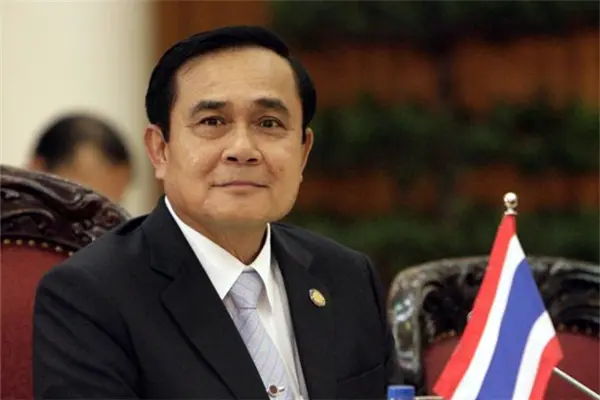A Sunday released poll says many support the junta chief and current prime minister, Prayut Chan-o- cha, to serve as prime minister after a promised general election late 2017, while two major political parties asked him to form a party for the election.
87.2 percent of the 1590 interviewees of different occupations around Thailand want Prayut to be the next prime minister, because no one is better than him to lead the country, said Noppadol Kannika, chairman of the so-called Academic Research for Community Happiness, or known as Super Poll, adding that his poll is conducted between Aug. 25 to 27.
According to the Suan Dusit Poll released on the same day, 72.15 percent of its 1293 interviewees have confidence in the junta led by Prayut, 60.94 percent have confidence in his cabinet.
Prayut earlier didn't deny the possibility of serving as the new prime minister, as he said on Aug. 17 that if none is found to be appropriate for the position after the general election, he would agree to discuss serving prime minister again.
On Friday, he even said he is pleased to stay in power but will stay through democratic means and in a "dignified way", which many Thai media described as a signal that he wants to stay in power after the general election.
Prayut also said that he will step down in accordance with the junta's roadmap and nobody can tell him to leave.
According to the newly approved draft constitution and its additional question in the Aug. 7 referendum, the next prime minister must come from nomination lists submitted by political parties, and must win support of over 50 percent of 750 members from both houses, or 500 junta selected senators plus 250 elected members of the lower house.
However, once the 750 members cannot elect a new prime minister, then the party-list can be exempted once two-thirds of members of both houses approved, and members of the lower house can nominate someone to be the prime minister, no matter the person is on parties' lists or not.
As a result, there are two ways for Prayut to become the next prime minister, firstly forming his party to join in the election and secondly be nominated when both houses cannot decide the right one for the position in the first process.
Since 250 senators, or more than 30 percent of total members are picked up by the junta, many said it is not hard for him to be elected in this process.
Some prominent figures from Thailand's two major parties, namely Pheu Thai Party and Democrat Party, asked Prayut to form his own party to join in the coming election so as to be dignified as he mentioned.
The Democrat Party's deputy leader Nipit Intarasombat said if Prayut wants to be the next prime minister, the first way, or forming his own party to nominate him as prime minister, is the most dignified way.
Paiboon Nititawan, a former senator, said earlier that he will form a new party called People's Reform Party to run in the next election, and Prayut is best one to serve as the new prime minister.
In the meantime, Prayut and his government have to find a way to boost the Thai economy to win more support from the people.
Despite high satisfaction with the junta's performance in keeping the country stable and peaceful, nearly 56.22 percent said they don't have much confidence in the junta's governance in the economic field, while 82.6 percent said solving economic problems in the country should be the government's priority now, according to Suan Dusit Poll.
Prayut admitted earlier that the economic problems are not solved yet, because the international purchasing power is still weak, according to Bangkokbiznews.
Thai Gross domestic product(GDP) expanded 3.5 percent in the three months through June, which is more than analysts estimated, compared with 3.2 percent in the first quarter.According to World Bank, the Thai GDP grew 0.8 percent in 2014, and 2.8 percent last year. The bank predicted the 2016 GDP growth to be 2.5 percent, while The Bank of Thailand said economic growth will be 3.1 percent this year.
(APD)
 简体中文
简体中文

